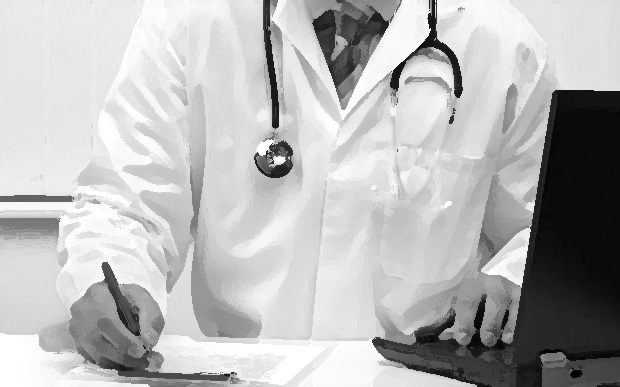
by medicaltechont | Dec 31, 2016 | Doctors, e-Health, Electronic Medical Records, Ontario, Technology
“For example, wouldn’t it make sense that anytime a patient has lab tests completed anywhere in the province that the results of these tests would be immediately sent to the records in each of their doctors’ offices?”
Minister Eric Hoskins’ Bill 41 continues to be confounding for many physicians, but possibly the most consistent question I am hearing is: Why do we need another layer of bureaucracy? How will sub-LHINs improve the system? One very intriguing twitter answer that I received suggested that this extra bureaucratic layer will serve as “administrative infrastructure” for primary care. That is something worth considering since I agree that Family Doctors need much more support than they are currently receiving.
Before I move directly into the discussion, I want to stress that I am not including those primary care providers who are not physicians in this consideration. The reason is that I want to focus on the infrastructure resources needed to deliver primary care and the Nurse Practitioner- led clinics are tremendously well-resourced, with all expenses already covered by the government, a luxury that physicians cannot access to the same degree which is the point here.
Read more at https://drgailbeck.com/2016/10/28/bill-41-infrastructure-investment/

by medicaltechont | Oct 17, 2016 | OHIP Billing, Ontario, Privacy, private clinics
TORONTO, ONTARIO–(Marketwired – Oct. 7, 2016) – This afternoon, the Wynne government has made public a formal invitation from the Health Minister to Ed Clark to “assess and validate the value these [health data, e-health records and related intellectual property and infrastructure] systems have created for Ontario and to recommend ways to take them to the next level”.
Read more at http://www.marketwired.com/press-release/coalition-warns-health-minister-privatization-ontarios-health-systems-patient-records-2164963.htm

by medicaltechont | Jun 6, 2016 | Uncategorized
New medical technologies are here and ready to be adopted en masse by Canadians, but the marketplace is too fragmented and access too uneven for that to happen right away, said several speakers at an Ottawa forum on seniors.
The spread of new technology like smartphones that are jam-packed with sensors is happening just as the country is being hit with a wave of baby boomers crossing into old age.
Medical experts and industry representatives alike want to see new technologies embraced that would potentially take some pressure off hospitals by allowing people to do more of their health monitoring from home.
With new tech, however, comes new potential concerns, from privacy issues to affordability to ease of access.
Read more at https://www.hilltimes.com/2016/06/03/medical-technology-marketplace-too-fragmented-forum-hears/67450

by medicaltechont | Apr 20, 2016 | Technology
High quality global journalism requires investment. Please share this article with others using the link below, do not cut & paste the article. See our Ts&Cs and Copyright Policy for more detail. Email ftsales.support@ft.com to buy additional rights.http://www.ft.com/cms/s/2/f643993e-e620-11e5-a09b-1f8b0d268c39.html#ixzz460vOQPAd
While working on developing sensors to measure stress, Rosalind Picard and a team at the Massachusetts Institute of Technology (MIT) made a startling discovery. They found that when monitoring skin for electrical changes activated deep in the brain, the signals proved effective at detecting potentially fatal seizures.
The findings open the door to wearable monitoring devices that, among other things, could reduce deaths among people with epilepsy. “Wearables are going to be much bigger than anyone imagined,” says Prof Picard, founder and director of the Affective Computing Research Group at the MIT Media Lab.
Read more at http://www.ft.com/cms/s/2/f643993e-e620-11e5-a09b-1f8b0d268c39.html#axzz460vLlcnp

by medicaltechont | Jan 24, 2016 | Canada, Education, Technology, United States
HeadCheck Health wants to minimize the damage of concussions in sports.
The app, created by UBC PhD student Harrison Brown and UBC MBA graduate Kerry Costello, aims to help coachers properly assess concussions in real-time.
Read more at http://www.techvibes.com/blog/seeking-safety-in-sports-headcheck-app-diagnoses-concussions-immediately-2016-01-22






